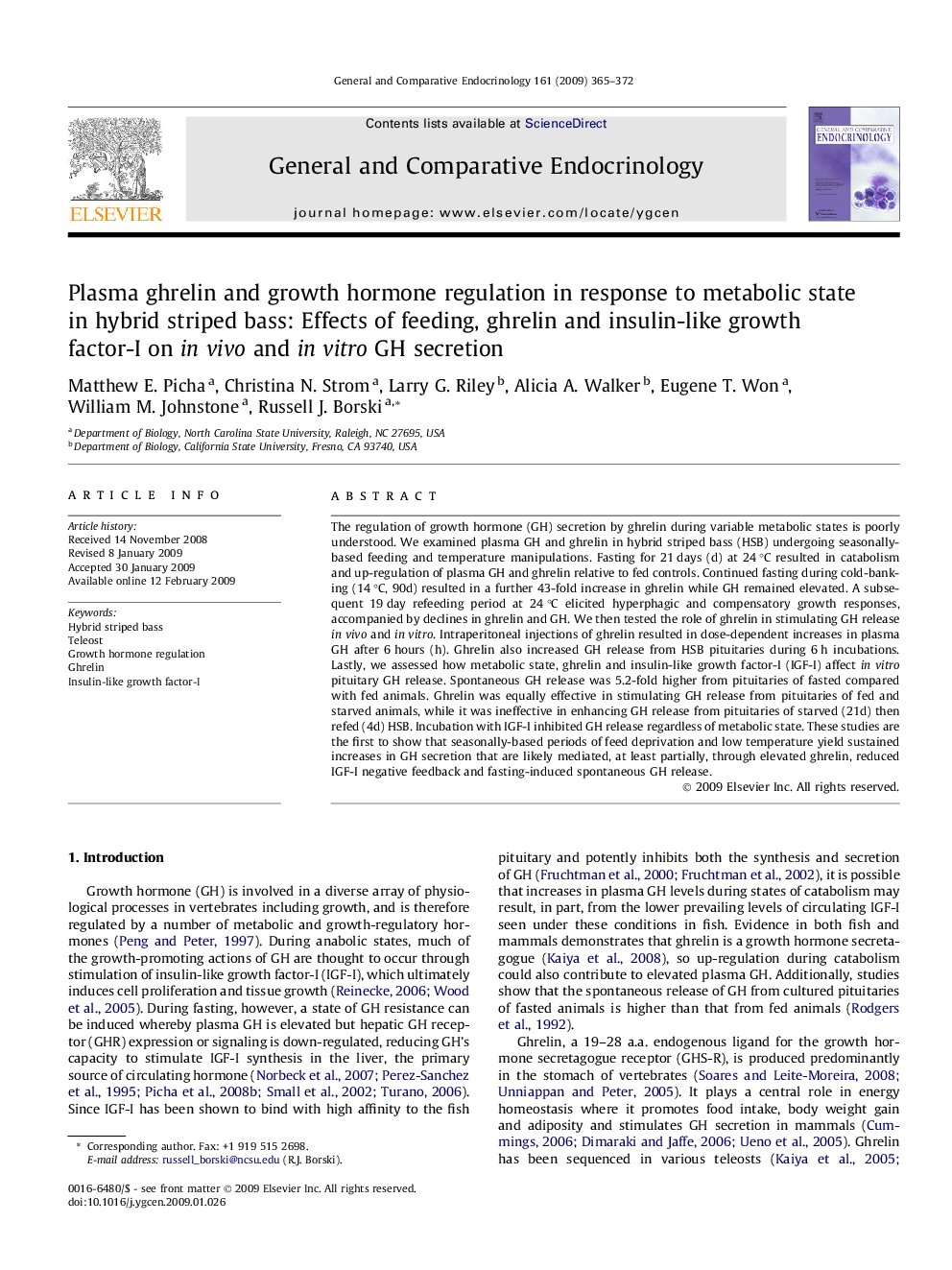| Article ID | Journal | Published Year | Pages | File Type |
|---|---|---|---|---|
| 2801543 | General and Comparative Endocrinology | 2009 | 8 Pages |
The regulation of growth hormone (GH) secretion by ghrelin during variable metabolic states is poorly understood. We examined plasma GH and ghrelin in hybrid striped bass (HSB) undergoing seasonally-based feeding and temperature manipulations. Fasting for 21 days (d) at 24 °C resulted in catabolism and up-regulation of plasma GH and ghrelin relative to fed controls. Continued fasting during cold-banking (14 °C, 90d) resulted in a further 43-fold increase in ghrelin while GH remained elevated. A subsequent 19 day refeeding period at 24 °C elicited hyperphagic and compensatory growth responses, accompanied by declines in ghrelin and GH. We then tested the role of ghrelin in stimulating GH release in vivo and in vitro. Intraperitoneal injections of ghrelin resulted in dose-dependent increases in plasma GH after 6 hours (h). Ghrelin also increased GH release from HSB pituitaries during 6 h incubations. Lastly, we assessed how metabolic state, ghrelin and insulin-like growth factor-I (IGF-I) affect in vitro pituitary GH release. Spontaneous GH release was 5.2-fold higher from pituitaries of fasted compared with fed animals. Ghrelin was equally effective in stimulating GH release from pituitaries of fed and starved animals, while it was ineffective in enhancing GH release from pituitaries of starved (21d) then refed (4d) HSB. Incubation with IGF-I inhibited GH release regardless of metabolic state. These studies are the first to show that seasonally-based periods of feed deprivation and low temperature yield sustained increases in GH secretion that are likely mediated, at least partially, through elevated ghrelin, reduced IGF-I negative feedback and fasting-induced spontaneous GH release.
